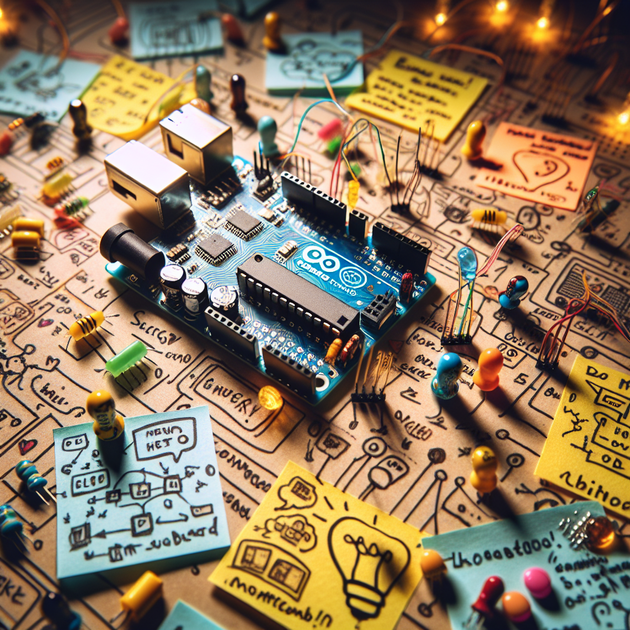What happens when you let an online community steer a DIY electronics build? You get something like Sarduino—a project where the “top comment gets added” and everyone has a say in what comes next. This quirky experiment isn’t just about making something cool; it’s proof that collaboration can shape even the most technical projects in unexpected ways.
How “Top Comment Gets Added” Became Project Rules
Every Friday on Reddit’s r/diyelectronics forum, there’s a fresh opportunity for users to influence the direction of this build. The rules are simple: whatever suggestion gets the most upvotes by Friday becomes part of the next iteration. Last week’s winner? “I think if we’re going to make this work, we’re going to need a lot of IO. I say add an MCP23017,” suggested by HilmLary.
But here’s the twist—there wasn’t an MCP23017 chip handy. Instead of scrapping the idea or waiting for new parts to arrive (and letting momentum die), ScienceDraco asked if an Arduino or Raspberry Pi could step in for some extra input/output (IO) power. HilmLary and others agreed. Just like that, “Sarduino” was born—a mashup name that hints at where things are headed!
Sarduino’s Origin Story—And Why It Matters
The real magic here isn’t just about making circuits or code; it’s about people coming together from all over the world to build something bit by bit. With each round of voting and discussion, this project turns into a fun game of improvisation and adaptation.
Even though there’s no MCP23017 chip on hand, switching gears to use an Arduino or Raspberry Pi shows how flexible these builds can be—and how creative solutions often come from working within limits. The Sarduino isn’t coded or connected yet (that could change tomorrow with another round of comments), but it already has a story worth sharing.
How Community Collaboration Shapes Every Step
Letting the top comment decide what happens next might sound chaotic—but it actually keeps things surprisingly organized and inclusive:
- Shared ownership: Everyone gets a chance to contribute ideas.
- Problem-solving: Limitations (like missing hardware) spark creative solutions.
- Learning together: Each addition teaches new skills or concepts.
- Instant feedback: Decisions happen fast thanks to upvotes and replies.
And since ScienceDraco posts updates regularly (with another one coming tomorrow), there’s always something new for fans and contributors to look forward to.
A Quick Anecdote from the Thread
One user joked that “Sarduino sounds like a pasta-themed microcontroller,” while another wondered if this was secretly an elaborate way to crowdsource homework. That sense of humor keeps threads lively—even when discussions get technical or plans change unexpectedly.
What’s Next for Sarduino?
Right now, nothing is hardwired or programmed—yet. But with every cycle of suggestions and votes, new possibilities open up. Maybe someone will suggest adding sensors next; maybe it’ll be LEDs or motors—or maybe something totally wild nobody’s thought of yet.
If you’re curious about what comes next (or want your idea included), check out ScienceDraco’s latest update and drop your own suggestion in the comments. Who knows—your input could shape version two!
So—what would you add if you had total control over a crowdsourced electronics project?

Leave a Reply